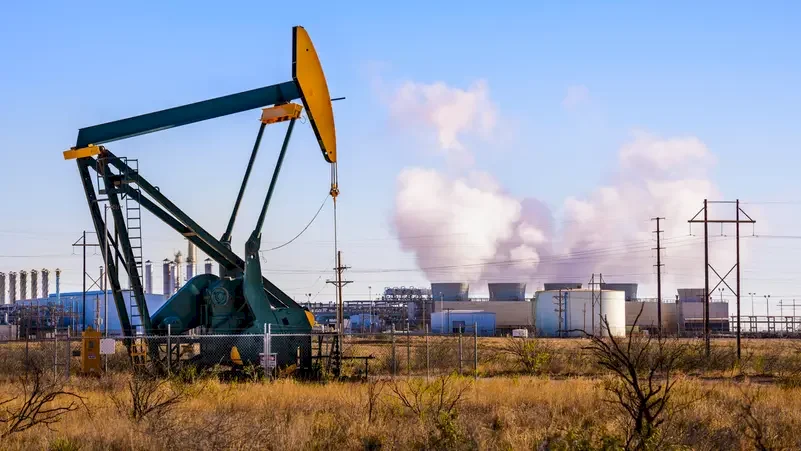
Oil Prices Rise After US's Conciliatory Tone Toward China
SadaNews - Oil prices rose after US President Donald Trump's administration expressed readiness to reach an agreement with China to contain the renewed trade tensions between the world's largest crude consumers.
Brent crude climbed above $63 a barrel after falling 3.8% on Friday, marking its largest decline since August, while West Texas Intermediate remained close to $60.
Trump announced on Friday the imposition of additional tariffs of 100% on Chinese goods, along with restrictions on the export of "all critical software" effective November 1, following Beijing's imposition of new tariffs on US-bound vessels and restrictions on the export of rare minerals and other vital materials.
However, on Sunday, Trump indicated his willingness to reach an agreement as Beijing urged Washington to negotiate, emphasizing that it would not hesitate to respond to any threats.
The US president told reporters aboard Air Force One in the early hours of Monday, Asian time: "We will be fine with China," although the plan to impose tariffs on November 1 remains in place.
He also stated that he would consider supplying Ukraine with long-range "Tomahawk" missiles, enabling it to strike deeper into Russian territory, which increases the risk of further disruptions to oil supplies from OPEC+ member countries.
Technical Recovery After Sharp Losses
Khurshid Guard, the executive director of investment at Chicago-based Karobar Capital, stated: "The market had priced in the worst-case scenarios, so just a softer tone from Trump gives oil some room to catch its breath."
He added: "But this seems more like a correction of positions rather than a real shift. Traders are covering their positions after sharp sell-offs last week. Unless we see actual progress in trade negotiations, the gains are likely to fade quickly."
Chinese Tariffs on US Ships Add Uncertainty
China's decision to impose tariffs on ships owned by US companies arriving at its ports has led to last-minute cancellations of bookings across various types of vessels, including oil tankers, causing shipping costs to rise.
These tariffs come into effect on October 14 and reflect similar measures taken by Washington against Chinese vessels, while the Trump administration targets the Asian country's dominance in global logistics and shipbuilding sectors.
These measures have added further uncertainty to oil market forecasts, which have seen declines over the past two weeks amid increased production by the OPEC+ alliance, with fears of an expected oversupply later in the year. Meanwhile, the fragile ceasefire agreement between Israel and Hamas has alleviated concerns about renewed fighting in the Middle East, a source of about a third of global oil supplies.

Intel Shares Plummet Over 10% After Disappointing Revenue Forecasts

Rising Gold and Silver Prices Globally: What Could Halt Their Surge?

"TikTok" sells majority stake in U.S. operations to non-Chinese investors

Bin Ghati: We Currently Rule Out An IPO, Planning Expansion in Abu Dhabi and London

Saudi Sovereign Fund Raises Two Billion Dollars from International Sukuk Offering Amid Str...

S&P: Davos Assumptions for Electricity Supplies Until 2029 are "Impossible"

Oil Prices Stabilize as Geopolitical Tensions Over Greenland Ease
